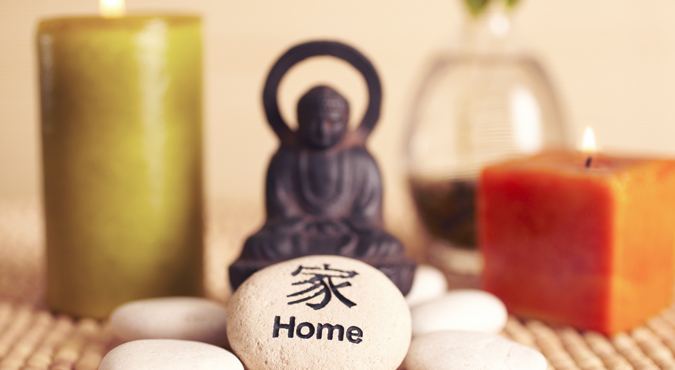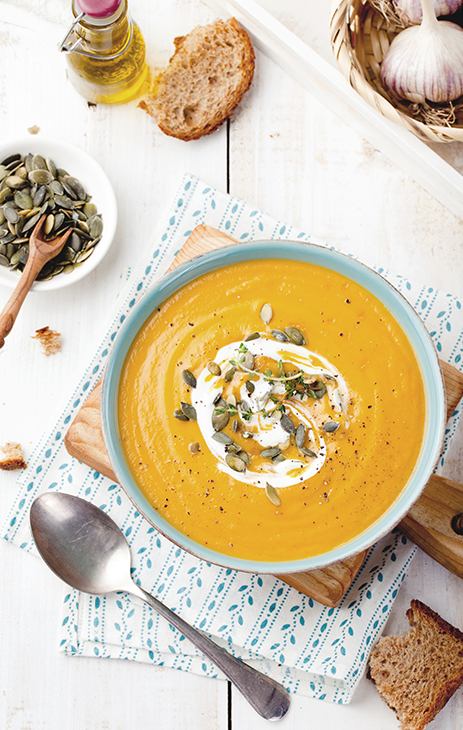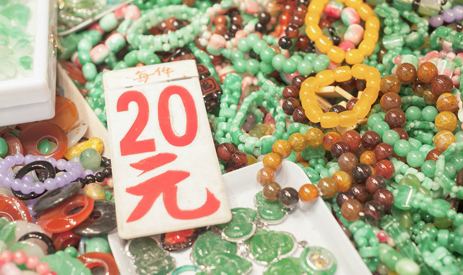The advantage of living in a foreign country is the opportunity it provides for learning about another culture. Most of the Chinese people with whom you will interact are quite sophisticated and worldly. Many have been educated in the West, and many more have traveled extensively. Consequently, there is very little you can do that will shock or insult them with a few exceptions.
Despite its worldly veneer, Hong Kong is a very Chinese city and ancient traditions and ancestral rites are deeply embedded in the culture. It is fascinating to learn as much as possible about China and its history while you are here. Your insights will be invaluable in helping you to appreciate much of what goes on around you every day.
Below we discuss some very general Chinese customs that we hope you will find helpful as you adjust to your new environment.

Feng Shui
Decisions on the design of buildings and even on where to place your bed in your apartment are made based on the ancient Chinese geomancer's art of feng shui. The principles of feng shui, which literally means wind and water, are an intrinsic part of doing business in Hong Kong. A feng shui master is consulted to determine the site of a building, the arrangement of furniture, the opening of an office, or the selection of a wedding date. The most auspicious dates and physical settings are those in harmony with the elemental forces of the earth.
General Customs
- It is polite to use both hands when you give or receive anything: a business card, a gift, or even a borrowed pen.
- With Chinese names, the surname comes first: for example, Wong Sun Ting is referred to as Mr. Wong. If he were to use an English name, it would be written as follows: Sun-ting Wong.
- Avoid losing your temper. It is considered loss of face to lose control of one's emotions.
- Chinese are more formal than Americans and avoid direct body contact other than shaking hands. Disagreeing with someone is considered impolite.
- Chinese often will give the impression of agreement even when they may internally disagree.
Business Customs
- Business cards should be printed in English on one side and in Chinese on the other side.
- Business cards are given and received with two hands. It is considered respectful to examine the card after receiving it.
- Standard business attire is a suit and tie year-round. Women dress in business suits also.
- Punctuality for appointments is important.
- Tea, coffee or water should be offered to visitors. When offered, it is polite to accept. Take a sip at least.
- If tea is served during a meeting, do not touch yours until the host begins. If the tea sits untouched for a long period, this may signal the meeting has ended.
- Business entertaining is almost always done in restaurants, not in the home. Hospitality should be returned.
Further Reading
There are a number of excellent publications available in local bookstores if you would like to learn more about Chinese customs. Some suggestions are:
- Culture Shock Hong Kong by Betty Wei and Elizabeth Li
- History of Hong Kong by Frank Welsh
- Beyond the Chinese Face by Michael Harris Bond

- When invited to a Chinese dinner, it is not necessary to bring a gift unless the dinner is for a special reason, such as a birthday. We would recommend you check with any others who are attending for guidance.
- It is polite to let your host order the food.
- You will usually be served meat, fish and vegetable dishes. The soup and rice will be served towards the end of the meal. Guests leave immediately after the dessert is served.
- Wait for the host to begin. He or she may suggest you help yourselves and you should do so.
- Take the piece of food that is closest to you. It is not polite to reach across the table or stand up to reach other dishes even if the table is very large.
- If your chopsticks touch a piece of food, consider it yours.
- If a serving spoon is provided, always use that to serve yourself; otherwise chopsticks are fine. Never eat from the serving spoon.
- If a sauce comes with the dish, use your chopsticks to dip the food into the sauce, or alternatively, pour a little of it onto your plate. If you have already bitten into the food, do not dip it in the sauce.
- Avoid pointing your chopsticks at anyone, as this is considered rude - interpreted to be adopting a scolding posture.
- Take one piece of food at a time, or at least a small portion.
- Bones may be removed from the mouth with the help of chopsticks and placed on your plate.
- Avoid taking the last piece of food from the serving dish even if the host insists. It may signal to the host that he has not ordered enough food and his guests are still hungry.
- If you are eating fish, it is often served in one piece with the head and tail intact. Often the head of the fish is offered to the most distinguished guest. Acknowledge the honor even if you do not eat it.
- Chinese people do not usually use their fingers for eating. An exception is shrimp that needs to be peeled. Place the shells on your plate and use the communal finger bowl for cleaning your fingers. After the shrimp course, plates will be changed by the waiter. Usually wet towels are also at each place for cleaning your hands.
- Chinese guests usually leave the table very promptly after eating a meal. Watch to see what your host does and follow his lead. At banquets, whole oranges are often served as dessert. This is usually the sign that the meal is over and some guests take their orange home with them. Watch to see what your host does and follow his or her lead.
- The host will almost always pay the entire dinner bill. Splitting the bill or "going Dutch" is frowned upon and can cause loss of face for the guests. As a guest, it is considered polite to make an attempt to pay, however let the host pay the bill after two or three polite attempts to wrestle the bill. Smiles and gentle arguing over who pays the bill is a common scene in Chinese restaurants.

Gifts
- The most appropriate gifts to bring are fruit, chocolate or alcohol.
- A gift is not usually opened in front of the giver. The gift will be set aside and opened later.
Lucky Money
- Money placed in special red envelopes, called 'Iai see' packets, are given as gifts, especially at Chinese New Year.
- Lai see should be distributed to recipients the first time you see them after the start of Chinese New Year. It is usually given to caretakers, guards, building personnel, secretaries and other people who have given you good service over the year. Use crisp, new bills. Avoid giving two $20s, which equals forty, because it is the same sound as "death" in Cantonese.

